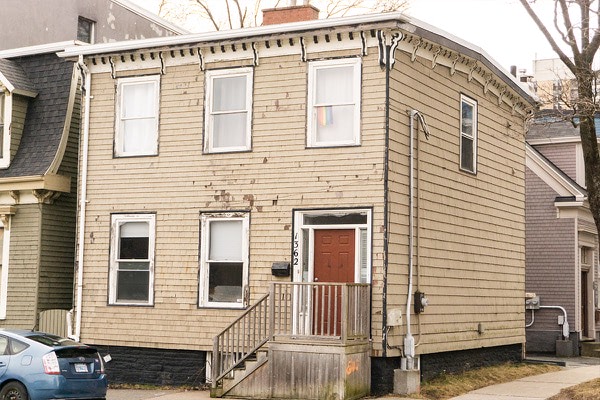Should you buy a fixer-upper? In this post, we review the benefits and drawbacks of this type of real estate purchase.

Is it time for a refresher on mortgage terms?
Let’s talk about some common mortgage terms!
So, you’re thinking of buying a home and are trying to understand the process. Chances are, you’ll end up on multiple different websites researching best practices while trying to learn the mortgage lingo.
Common mortgage terms explained
Worry not! We’ve compiled all the mortgage terms you need to know in simple terms to help you on your way to homeownership.
Amortization
This mortgage term simply refers to the total length of the time you have to pay your loan back.
Since houses cost hundreds of thousands of dollars, it’s obviously not easy to pay the amount back in a few years. In Canada, the average amortization is 25 years. Also, your loan comes with interest. So, when you amortize your loan for fewer years, your interest is lower since you’re paying off your dues quicker.
Term
The way you pay off your amortized loan is by entering into a term with your lender.
You are committed to your lender by being locked in for the set number of years. Right now, the interest rates are very low, so many Canadians are locking themselves in for at least five years. Breaking the term for whatever reason results in a penalty and heavy fees.
Once those five years are up, you negotiate a new term. Make sense?
Fixed-rate mortgage
You are loaned money for a mortgage and the lender receives interest on top of the money owed from you.
This mortgage term is just as it says. Your interest rate is fixed to the term and won’t change even if the market rate fluctuates.
Since your interest rate is fixed for let’s say five years, it makes your mortgage payment predictable. Easy budgeting and stability are some of the perks of a fixed-rate mortgage.
It’s the most common type of mortgage – 66 per cent of the total mortgages in Canada are fixed.
Variable-rate mortgage
In contrast to a fixed-rate mortgage, a variable rate mortgage fluctuates. On top of the regular payment which remains constant, your interest rate depends on the market conditions and rates.
If the market rate goes down, more of your payment will go towards the principal. And if the market rate goes up, more of your payment will go towards paying the interest.
When you come across this mortgage term, understand there is more flexibility that comes along with it. For instance, you can convert to a fixed-rate mortgage at any given time.
Of the total mortgages in Canada, 29 per cent are variable-rate mortgages.
Default
The mortgage term ‘default’ means that you have violated one or several terms on your mortgage agreement.
Your mortgage loan agreement is a contract that lists all your obligations of your mortgage payment. The most common reason for defaulting is being unable to make your agreed monthly payment.
Closing costs
Closing costs are the fees you must pay towards closing a real estate transaction.
These fees include the land transfer tax, title insurance, oil adjustments and many other legal and administrative costs.
This mortgage term is often used by realtors and mortgage brokers who help you out when purchasing your property. The fees depend on the lender and the region you live in Canada.
Your lender always has to ensure that you have enough closing costs, along with your down payment. Closing costs are typically between 1.5 per cent to four per cent of the home’s purchase price.
Home Equity Line of Credit
A Home Equity Line of Credit or in an easier term – HELOC, is a line of credit secured by your house that gives you a revolving credit line to cover large expenses.
Once you have enough equity in your house (at least 20%), you borrow against the available equity in your home and the house is used as collateral for this line of credit.
You can use HELOC funds for various purposes like remodelling your home, paying for college or even buying a new car.
You can even use HELOC to consolidate high-interest debts like credit cards.
Refinancing
Another mortgage term to understand is refinancing. This means renegotiating your existing mortgage loan agreement.
The reason why Canadians refinance their current mortgage agreement is that they would like to access the equity in their homes. Another reason is to take advantage of lower interest rates.
By refinancing, you can even consolidate debt, get money for home renovations or use the money for investing purposes.
If you decide to refinance your home before your term is up, you’ll have to pay prepayment charges.
Debt-to-income ratio
The debt-to-income ratio (DTI) is a way for lenders to measure your ability to manage payments you make on the money you’ve borrowed.
This mortgage term is so important because your DTI affects how much a lender will loan to you and the interest you’ll be charged.
The way to calculate DTI is simple. Add all your monthly debts like credit cards, car loans, education loans etc. and divide it by your monthly gross income.
A good DTI ratio for mortgage approval in Canada is 36 per cent or less.
Do you know your mortgage terms?
Buying a house means you will have to learn a lot of new terminologies. By understanding these mortgage terms now, you’re already a step closer to getting started with the process of becoming a homeowner.
If you have any questions about mortgage terms, give us a call at Clinton Wilkins Mortgage Team! You can contact us at 902-482-2770 or get in touch with us here!


